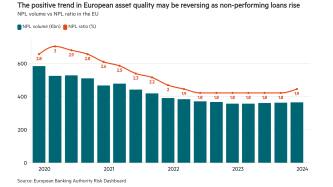Switzerland is levelling up its economic crime agenda, having launched, in August 2023, a consultation procedure on a bill to strengthen its anti-money laundering (AML) framework. New reforms could tighten money laundering regulations, holding banks more accountable for reporting, scrutinising and controlling risks.
This follows major developments in the European Court of Justice regarding ultimate beneficial ownership (UBO), says Ted Datta, head of the financial crime compliance practice at Moody’s Analytics.
Alongside plans to create a central registry to better identify and map company ownership structures, measures to prevent sanctions legislation from being breached or circumvented will also be introduced to further strengthen Switzerland’s AML framework.
AML due diligence rules will also apply to specific consultancy activities, like legal advice, which the Swiss Federal Council reported as carrying an “elevated risk of money laundering”.
The council will submit the draft rules to parliament next year.
Ultimate beneficial ownership
Swiss banks make it the world’s biggest manager of offshore wealth, yet the Swiss Financial Market Supervisory Authority reported in August 2023 that many examined banks’ anti-money laundering and counter-terrorist financing risk analyses were deficient.
“The proposed reforms of the AML framework ahead of the Financial Action Task Force [FATF] mutual evaluation seek to expand beneficial ownership registration rules, a step towards increasing transparency in Switzerland while many European registries are coming offline,” says Mr Datta.
While the reforms would expand UBO registration rules, the central registry itself would remain non-public under the Swiss model, Mr Datta says, with it only being accessible to crime agencies, tax authorities and certain financial intermediaries for carrying out their know your customer and AML due diligence obligations.
“For compliance teams at financial institutions, a core challenge will be sourcing accurate Swiss beneficial ownership information that is now stored in the new central registry,” says Mr Datta.
Having a unified UBO database that aggregates regional ownership information and definitions — rather than separate, partial records held by individual firms — can help better identify owners and entities which may present risk, Mr Datta says.
“Financial institutions require robust systems to screen clients and transactions against evolving regulations around UBO registries, sanctions lists, and adverse media,” he adds.
Read more
Craig Timm, senior director of AML at the Association of Certified Anti-Money Laundering Specialists (Acams), says that — ideally — “there would be one source of true and accurate information which banks can rely on: the government’s central registry”.
As such, the new reforms could be “tremendous” for banks — in terms of their resources and ability to fight financial crime. But it could also be “very bad”, and require additional resources “not actually focused on fighting crime, but on collecting information and doing paperwork,” Mr Timm says.
This is because, globally, few countries are willing to let banks rely on this information without independently collecting it, Mr Timm says, predicting that Swiss banks will likely have to start discrepancy reporting.
“Not only does it not relieve the banks from what they’re doing today, it requires more work and more money,” he adds. “This is especially frustrating for banks who find that the vast majority of such discrepancies are ‘innocuous’,” Mr Timm says.
Some jurisdictions — like the Netherlands and Latvia — allow banks limited reliance on the central registry. “The idea is that for lower-risk entities, which are the vast majority of corporations out there, banks could rely on the government’s central registry,” Mr Timm says.
It’s “too early to tell” how Switzerland will navigate this, Mr Timm says, adding that very few countries have achieved it so far, because it’s “difficult and expensive”.
Pressure is on for banks
Other elements of the Swiss proposals will also increase the burden on banks, says George Voloshin, Acams’ global expert on anti-financial crime.
The threshold for cash payments in precious metals trading will be lowered from SFr100,000 ($110,745) to SFr15,000. Although some cash payments will be allowed above this limit, they will be subject to certain due diligence rules, according to the Federal Council. All cash payments in real estate business will be subject to AML due diligence rules, irrespective of the monetary amount involved.
“This implies more controls on the part of brokers and dealers, but banks will certainly be more scrutinised too,” Mr Voloshin says.
But while stronger regulation is a crucial step, the Swiss government must demonstrate viable enforcement action, says Henry Balani, global head of industry and regulatory affairs at Encompass Corporation.
Lacking enforcement as well as inadequate penalties may present a “double negative” in Switzerland, Mr Timm says. “Fines of $5000, $10,000 or even $20,000 won’t deter criminals,” he says, “and it also disincentivises law enforcement.”
“Just like for banks, to track down all this information across many countries is hard and resource intensive. From what I’ve heard from law enforcement in a number of countries, if it’s just going to be a slap on the wrist, they can’t justify devoting limited resources to this,” he adds.
Regulators are putting too much pressure on banks to fight financial crime alone, according to Mr Balani. This is especially the case as complexities around meeting regulatory requirements and thresholds continue to develop, he says.
A growing number of transactions — both illicit and legal — together with increasing sanctions, means banks are “ill-equipped” to tackle financial crime, Mr Balani says. “These banks are chasing their own tail sometimes to be able to make sure that they comply with the regulations as well as they can.”
Lack of accountability, resources and enforcement pose challenges that must be top of mind for the Swiss government as they develop and enact these proposals, Mr Timm says.












